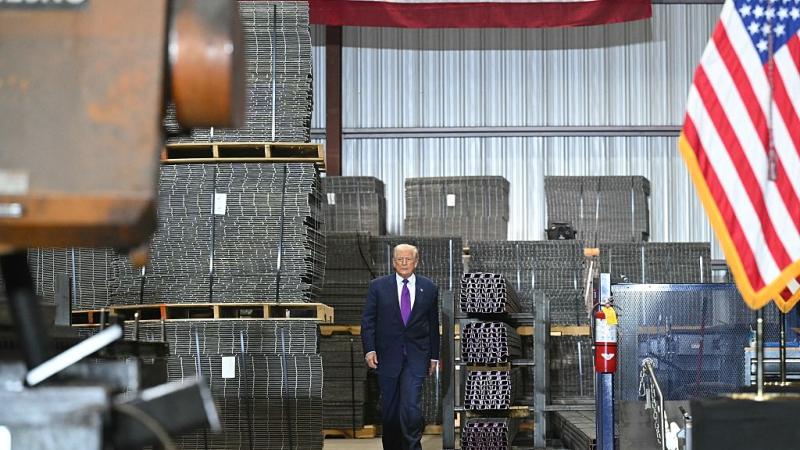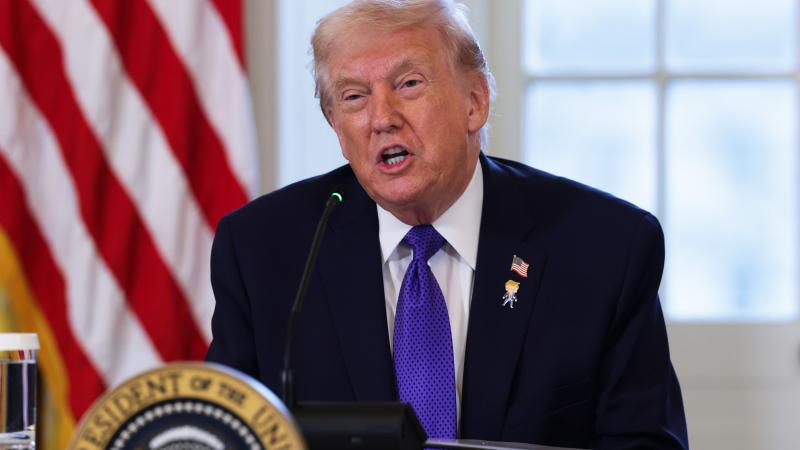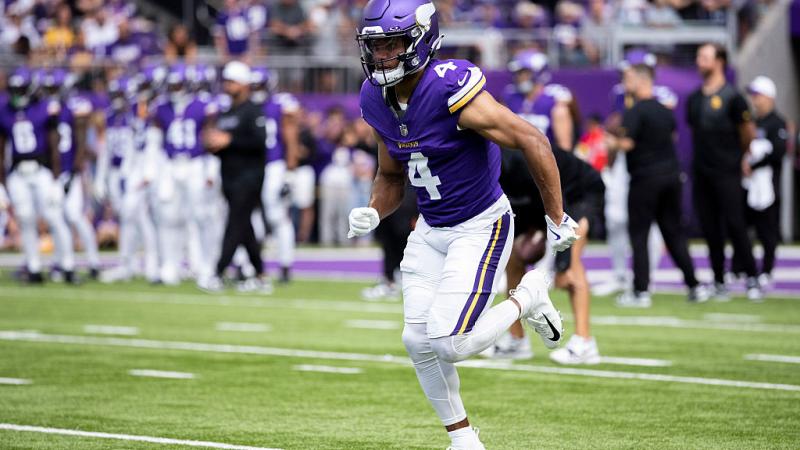Testimony takeaway: Garland claims to know little about agency issues, except for Biden plea deal
The hearing showcased severs tense exchanges between Republicans and the attorney general.
In testimony before the House Judiciary Committee, Attorney General Merrick Garland’s frequent answer of "I don't know” cemented the impression of an apparent ignorance of the major issues facing his agency.
But he appeared discernibly more aware Wednesday about the details of one specific issue: the unprecedented, now-defunct plea agreement involving first son Hunter Biden and the subsequent appointment of David Weiss as special counsel.
Garland's testimony came amid allegations that Biden-appointed officials in the DOJ stifled the years-long investigation into Hunter Biden and prevented the worst charges from being brought against him.
Under Garland’s leadership, however, the agency has faced many other allegations of misconduct, including the targeting of irate parents at school board meetings and traditional Roman Catholics.
Prior to the hearing, Committee Chairman Jim Jordan, R-Ohio, set the tone for questioning with a video trailer compiling past statements from Garland and asking "why hasn't the DOJ been square with us?"
The hearing itself included several tense exchanges between Republican lawmakers and the attorney general. In many cases, Garland indicated he was unaware of the answers to their questions.
Early in the hearing Louisiana GOP Rep. Mike Johnson asked Garland if he had "personal contact with anyone at FBI headquarters about the Hunter Biden investigation?"
Garland in turn indicated that he could not recall any conversations with the FBI on the matter, saying "I don't recollect the answer to that question, but the FBI works for the Justice Department."
"How many agents or assets of the government were present on January 5th and January 6th and agitating in the crowd to go into the Capitol and how many went into the Capitol?" asked Kentucky Republican Rep. Thomas Massie.
"I don't know the answer to that question," Garland replied. "I have no personal knowledge of this matter."
"Are you investigating who leaked the information that appeared in The Washington Post on October 6, 2022, about the Hunter Biden investigation?" House Judiciary Committee Chairman Jim Jordan asked.
"Um. I don't know the answer to that question" he replied.
"Do you agree that traditional Catholics are violent extremists? Yes or No?" asked New Jersey GOP Rep. Jeff Van Drew.
"I have no idea what 'traditional' means here," he retorted. Van Drew repeated the question multiple times, though Garland declined to answer either yes or no in that instance.
The retorts of ignorance, however, changed when it came to Hunter Biden’s plea deal.
Though prosecutors in August asked U.S. District Judge Maryellen Noreika to disregard a the proposed plea agreement, a request she obliged, the deal has drawn scrutiny for its unusual terms that conservative critics deemed overly lenient.
Under its terms, Hunter Biden would plead guilty to two misdemeanor tax charges for not paying his taxes on time in 2017 and 2018. He would also admit to a gun violation and enter into a pre-trial diversion agreement, the completion of which, could result in the gun charge's dismissal. In exchange for those admissions, the DOJ would recommend he receive two years of probation and no prison time.
Complicating matters were the inclusion of an immunity deal in the pre-trial diversion agreement instead of the plea deal itself and disputes between the prosecution and defense counsel about the scope of the immunity the first son would have received.
Garland, for his part, appeared well-versed on the developments that led to the deal's collapse. During the hearing, California GOP Rep. Darrell Issa pointed to Norieka's decision, saying "[j]ust a matter of week ago a federal judge found the actions of [Weiss] to be so outside what [s]he could have agreed to that [s]he pushed back on a settlement and nullified it." He further asked Garland if he agreed that such circumstances warranted congressional inquiry prior to the resolution of the case.
The attorney general swiftly took issue with Issa's description of events.
"I don't agree with the characterization of what happened in the plea,” he said. “The district judge performed her obligations under Rule 11 to determine whether the parties were in agreement... and determined that they were not."
He then pointed to Weiss's subsequent indictment of Hunter Biden on gun charges.
Federal Rule of Criminal Procedure 11 requires that the court determine that a defendant fully understand the terms of any plea agreement into which they may enter prior to accepting a plea.
Republicans, however, disputed Garland's rebuttal, contending that his appointment of Weiss as special counsel was likely the result of Norieka "calling b.s." on the plea deal. Jordan highlighted Weiss's own letter to South Carolina Republican Sen. Lindsey Graham in which he said that "I have not requested special counsel designation."
"Aug. 11, you announce that he's now the special counsel. What happened in that 31 days?" Jordan demanded.
"As I said publicly, several days before my announcement, I think three days, Mr. Weiss had asked to become special counsel," Garland replied. "He explained that he had reached the stage of his investigation where he thought that appropriate. I had promised to give him the resources he needed."
Jordan was unsatisfied with that retort, asserting that "[s]omething changed in 31-32 days from July 10 to Aug. 10. I think its two brave whistleblowers came forward and the judge called b.s. on the plea deal you guys tried to get past [her]. That's what I think happened."
Ben Whedon is an editor and reporter for Just the News. Follow him on X, formerly Twitter.
















